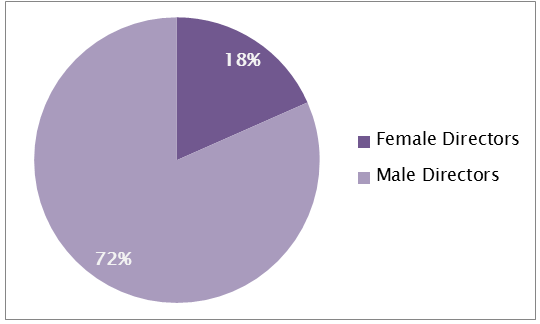Women make up just 18% of directors at technology companies based in London’s Tech City, the world’s largest tech startup cluster outside the US, according to newly released figures.
This is significantly lower than the representation of women on the boards of FTSE 100 companies, where 24% of directors are female. The government-backed target for the representation of women on FTSE 100 boards is 25%.
The new figures were released today by professional services consultancy Procorre, which said they demonstrate the scale of women’s lack of representation in a sector well known for its diversity issues.
There are less women in senior levels than across the industry as a whole – women make up 27% of the total digital workforce, down from 33% in 2002, and hold just 16% of IT jobs in the UK.
Procorre proposed new measures to ensure women are better represented at top levels in this crucial, high-growth sector.
These could include a self-imposed target for the industry, similar to the target for the FTSE 100, and more initiatives to dispel the misconception that startup and high-growth technology companies are hostile to female employees, such as the Women in IT Awards.
“There is undoubtedly a shortage of female graduates with the right qualifications to go into the digital industries, but the gender gap in Silicon Roundabout cannot be explained by that alone,” said Wiktor Podgorski, contracts and HR manager at Procorre. “Women make up 38% of maths graduates, which could easily be a stepping stone into a career in software development.”
However, only half of women who graduate in science, technology, engineering and mathematics (STEM) subjects go into STEM careers, compared with 68% of male peers.
“Technology-based industries seem to be unable to attract the female talent available, and we have to look at the reasons why,” added Podgorski. “Self-imposed targets seem to be working in the FTSE 100 – they could also help the tech sector to raise its game.
“For Silicon Roundabout’s concentration of high-growth companies, there is also a need to reassure women that they are not hostile places to work.
“The last recession proved that job security at larger businesses is not necessarily better than at smaller businesses. And although start-ups are definitely demanding environments, they can also offer great flexibility. The lack of ingrained corporate culture and open management structures mean that women can be very demanding in setting their working patterns.”






